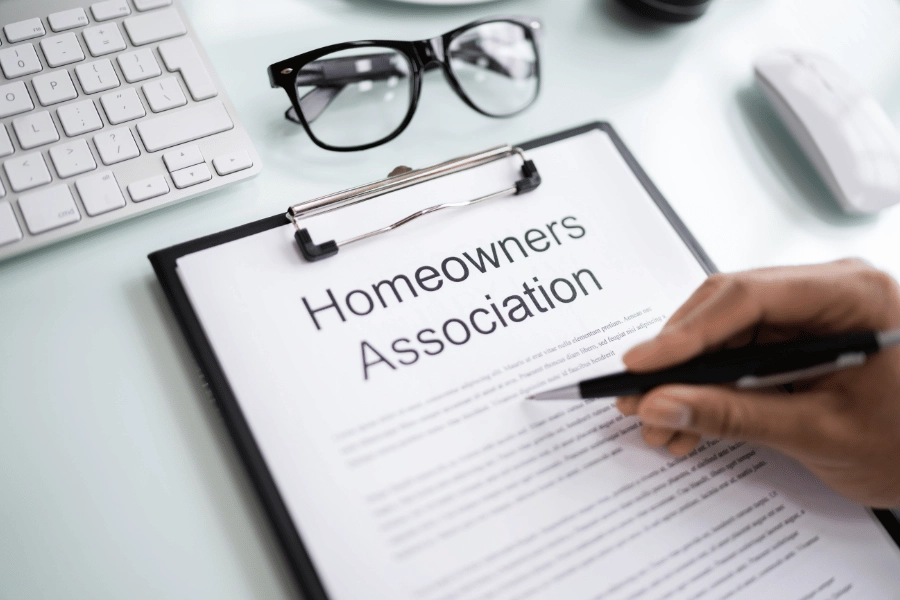PUD vs. HOA: What's The Difference?
Are you deciding between a PUD and an HOA? Before choosing a community, let's explore the differences between PUDs and HOAs.
When searching for your dream home in Raleigh, you'll likely encounter two common community structures: Planned Unit Developments (PUDs) and Homeowners Associations (HOAs).
While both offer community living with shared amenities and standards, they operate differently and can significantly impact your homeownership experience. Understanding these differences is crucial for making an informed decision that aligns with your lifestyle and financial goals.
A PUD property and an HOA can often sound the same, especially if you are new to real estate or buying your first property. While they can have similar characteristics, key differences set them apart.
Here is what you need to know about the differences between a PUD and an HOA.
1. What is a Planned Unit Development (PUD)?
A Planned Unit Development (PUD) is a small community containing many single-family homes, such as townhomes or condominiums. Real estate developers design PUDs to create attractive, well-maintained, cohesive living places.
This comprehensive development approach combines residential, commercial, and sometimes industrial uses within a cohesive community.
Unlike traditional subdivisions, PUDs offer flexibility in design, density, and land use, creating unique neighborhoods that often feature mixed housing types, integrated commercial spaces, and extensive gre
en areas.
A PUD may include housing and convenient access to workplaces, shopping, education, recreation, grocery stores, restaurants, daycare, and office spaces. A PUD may also contain storage facilities and religious institutions.
Defining characteristics of a Planned Unit Development
- The unit owners (homeowners) own both their residence (the structure) and their lot (the land)
- An HOA owns and maintains standard amenities that all unit owners may use
- The homeowners' membership in the HOA is mandatory
- The homeowner must pay dues and assessments levied by the association to maintain the common areas
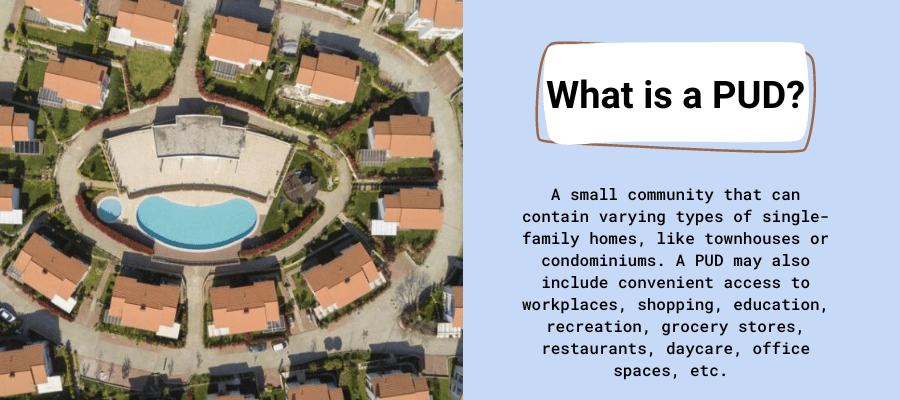
PUDs are approved through a special zoning process that allows developers to deviate from standard zoning requirements in exchange for providing community benefits like parks, walking trails, or affordable housing units.
This flexibility enables creative community design that maximizes land use efficiency and quality of life.
When living in a PUD, homeowners pay monthly dues to an association. These dues often go towards maintaining landscape and common areas, such as swimming pools, tennis courts, parks, playgrounds, and security.
Since PUDs have common areas, a property in a PUD can be more expensive. Before buying a home in a PUD, ask yourself if you want to pay these fees. Are you going to use the amenities enough to justify the extra cost?
PUDs are very similar to HOAs but pose some key differences.
- In a PUD, homeowners own the land on which their property sits, as well as the common area(s)
- PUDs aren't subject to Federal Housing Authority rules, unlike HOAs.
Townhouses
A townhouse, or townhome, is a type of house with multiple floors that shares at least one wall with other residences.
Townhouses are thin and attached to other townhouses in a long row. In an HOA-run townhome, the association owns the townhouse's land.
Condos
A Condo, or condominium, is a housing or residential complex in which separate units are located, each owned by an individual.
When renting a condo, you rent directly from the condominium owner. Condo owners jointly own the areas, such as pools, garages, and gyms, and the HOA owns the land on which the structure sits.
2. Rules in a PUD
PUD regulations operate on two levels: municipal oversight and community governance. The local government maintains ultimate authority over the PUD through the original development approval and ongoing code enforcement.
However, day-to-day community management typically falls under a homeowners association or property owners association within the PUD.
The main rule is that if your PUD has an HOA, you cannot opt out; once you buy the property, you are in it, and the only way to exit is to sell your home.
Standard PUD rules include:
- Architectural guidelines that may be more flexible than traditional subdivisions
- Land use restrictions that maintain the planned mix of residential and commercial uses
- Density requirements that balance various housing types
- Open space preservation mandates, often requiring 20-30% of land to remain undeveloped
- Traffic and parking regulations designed for mixed-use environments
3. Financial Impact of Living in a PUD
PUDs can affect your finances in several ways:
Property Values: PUDs often maintain strong property values due to their planned nature, mixed amenities, and preserved green spaces. The variety of housing options can appeal to a broader market, providing better resale opportunities.
Assessment Fees: Most PUDs require monthly or annual fees for community maintenance, which can range from $50 to $500+ monthly, depending on the amenities and services provided.
Tax Implications: Some PUD amenities may be publicly dedicated, potentially reducing individual tax burdens, while others remain privately owned and maintained through resident fees.
Utility Costs: PUDs may feature shared utility systems or energy-efficient community designs that can reduce individual utility costs.
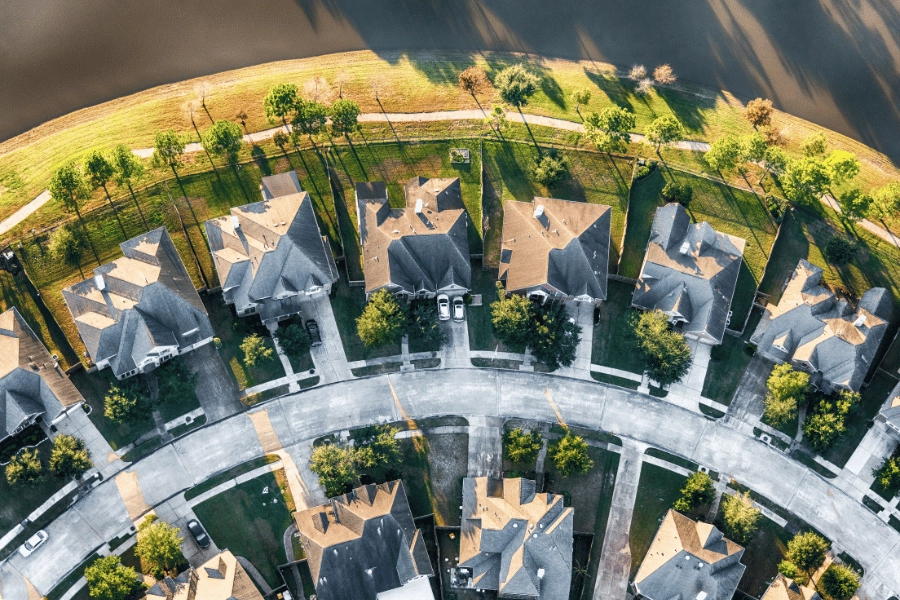
4. Benefits of PUD Living
Integrated Amenities: Many PUDs feature walking trails, parks, community centers, and even commercial services within walking distance of your home.
Design Flexibility: PUDs often showcase innovative architecture and creative use of space, offering unique housing options not found in traditional subdivisions.
Environmental Conservation: PUD requirements for open space preservation often result in more green areas, wildlife corridors, and sustainable design features.
Community Cohesion: PUDs' mixed-use nature and shared amenities can foster stronger neighborhood connections and a greater sense of community.
Walkability: Many PUDs prioritize pedestrian-friendly design, reducing dependence on vehicles for daily activities.
5. Disadvantages of PUD Living
Complexity: The dual governance structure (municipal oversight plus community association) can create confusion about jurisdiction and responsibility for various issues.
Limited Control: Residents have less influence over commercial development within the PUD, which the original developer or commercial property owners typically control.
Ongoing Development: Some PUDs are built in phases over many years, meaning construction disruption and changing community dynamics during the build-out period.
Potential for Conflict: Mixed land uses can sometimes create tension between residential and commercial interests within the community.
6. What is a Homeowners Association (HOA)?
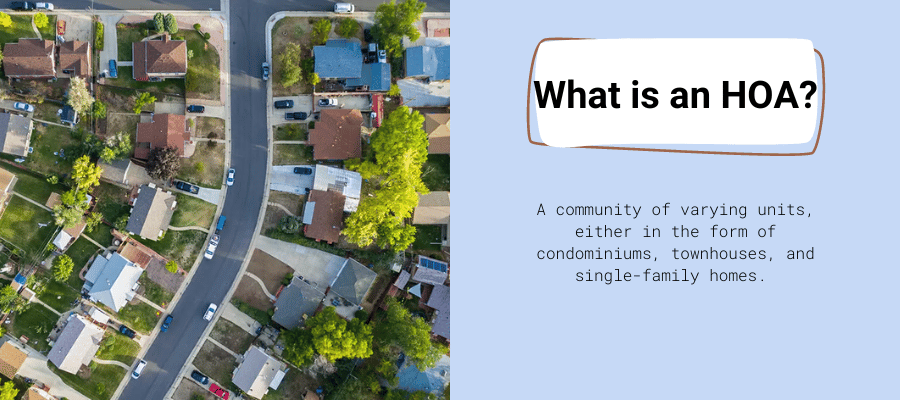
A Homeowners Association (HOA) is a legal entity created to manage and maintain common areas and enforce community standards in residential developments.
When you purchase a home in an HOA community, you automatically become a member and are subject to the association's governing documents, including covenants, conditions, and restrictions (CC&Rs).
An HOA is a non-profit organization comprised of volunteers and a governing body that makes and enforces rules for the subdivision of homes, condominium complexes, or planned unit developments (PUD).
When buying a home in an HOA, you are automatically required to pay dues and officially become a member. You will be invited to vote for the board of directors, which will include maintaining and caring for all shared amenities, collecting fees, and enforcing rules.
HOAs are typically established by developers to maintain property values and community standards. Once a certain percentage of homes are sold, they are turned over to resident control.
7. HOA Rules and Regulations
The rules of an HOA can vary, but some are common for everyone. HOA rules cover your homeownership rights, and upon signing, you agree to abide by these legally binding rules.
HOA rules are established through several governing documents:
Declaration of Covenants, Conditions, and Restrictions (CC&Rs): The foundational document that outlines property use restrictions, architectural standards, and homeowner obligations.
Bylaws: These govern the operation of the HOA itself, including meeting procedures, election processes, and board responsibilities.
Rules and Regulations: More detailed, day-to-day guidelines, covering issues like parking, pet policies, and noise restrictions, can be modified more easily than CC&Rs.
Standard HOA rules include:
- Architectural control requiring approval for exterior modifications
- Landscaping standards for front yards and visible areas
- Vehicle restrictions limiting commercial vehicles, recreational vehicles, or the number of cars per household
- Pet policies including breed restrictions, leash requirements, and waste cleanup rules
- Rental restrictions that may limit or prohibit leasing your property
8. HOA Board of Directors and Fees
HOAs are governed by a volunteer board of directors elected by community members. Depending on the community size, boards typically include a president, vice president, secretary, treasurer, and additional members.
The HOA Board of Directors has the authority to make and enforce community regulations designed to protect property values and the community's well-being.
The board oversees community finances, enforces rules, maintains common areas, plans capital improvements, and may hire professional management companies to handle day-to-day operations.
Members pay monthly, quarterly, or annual fees to fund community operations. These fees cover:
- Common area maintenance (landscaping, pools, clubhouses)
- Insurance for common areas
- Professional management fees
- Reserve funds for major repairs and replacements
- Utilities for common areas
- Administrative costs
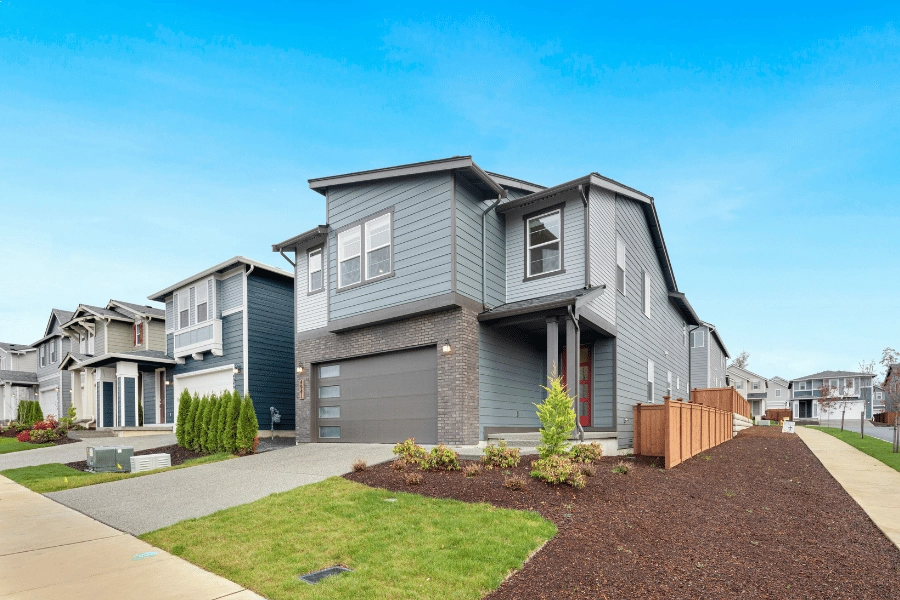
9. Benefits of HOA Living
HOAs offer many benefits to their members and the community. Although you pay a fee for these benefits, they often help you in the long run.
Property Value Protection: HOAs help maintain consistent community standards to protect and enhance property values over time.
Maintenance-Free Living: Many HOA communities handle exterior maintenance, landscaping, and major repairs, reducing homeowner responsibilities.
Amenities: HOA fees often provide access to amenities like pools, fitness centers, tennis courts, and clubhouses that would be expensive to maintain individually.
Dispute Resolution: HOAs provide formal mechanisms for addressing neighbor disputes and rule violations.
Community Standards: Consistent architectural and maintenance standards create visually appealing, cohesive neighborhoods.
10. Disadvantages of HOA Living
Loss of Autonomy: HOA rules can significantly restrict your ability to modify your property or make personal choices about its appearance and use.
Ongoing Fees: Monthly HOA fees represent a permanent additional housing cost that can increase over time, and special assessments can create unexpected financial burdens.
Potential for Conflict: Disagreements with neighbors or the board over rules, fees, or community decisions can create ongoing tension and legal disputes.
Enforcement Inconsistency: Some HOAs may enforce rules selectively or inconsistently, leading to frustration and perceived unfairness.
Board Politics: Volunteer boards may lack professional management experience, and community politics can sometimes interfere with effective governance.

Methodology
Factors such as fees, rules, advantages, and disadvantages were considered to determine the difference between a PUD and an HOA.
FAQs
What is an HOA?
A community of varying units, either in condominiums, townhouses, or single-family homes.
What is a PUD?
A small community that can contain many types of single-family homes, like townhomes or condominiums. A PUD may also include convenient access to workplaces, shopping, education, recreation, grocery stores, restaurants, daycare, and office spaces.
What is the difference between a PUD and an HOA?
In a PUD, the owner owns both the residence and the land. In an HOA, members do not own the land on which their property sits.
PUD vs. HOA - Final Thoughts
Before buying a home, it is essential to understand the difference between a PUD property and an HOA. You must decide which one better fits your lifestyle, whether you can afford the extra cost, and whether the benefits are essential to you.
Navigating the complexities of PUDs and HOAs requires local expertise and careful attention to detail. Whether you're drawn to a PUD's innovative design or an HOA community's predictable standards, we're here to guide you through every step of your home-buying journey.
Are you ready to explore Raleigh's diverse communities? Contact us today to start your search for the perfect home in the ideal neighborhood.
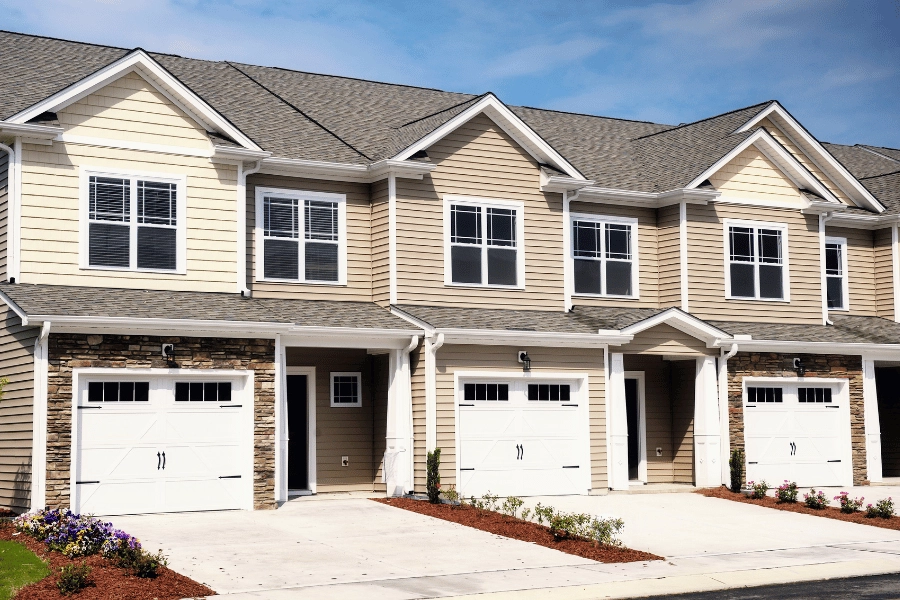
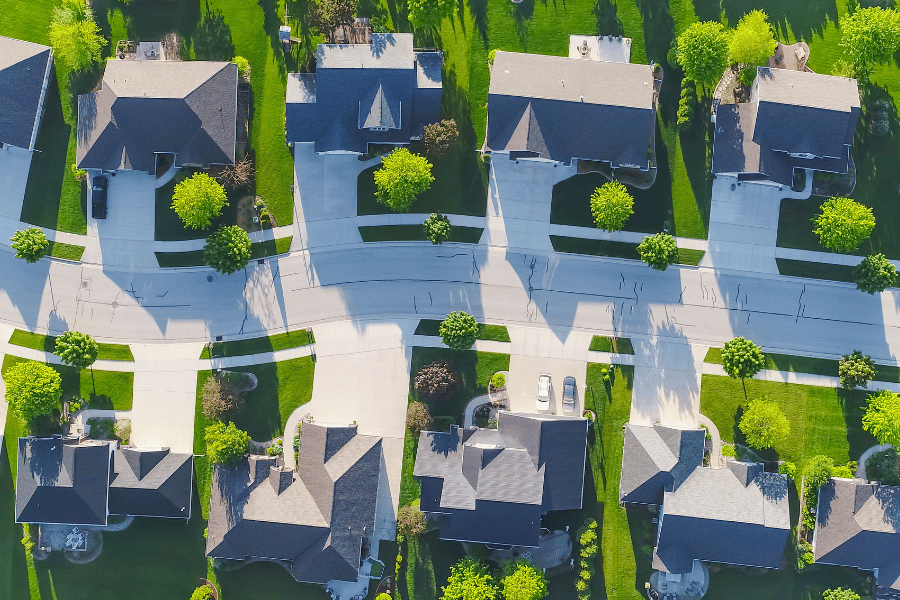

.png)
